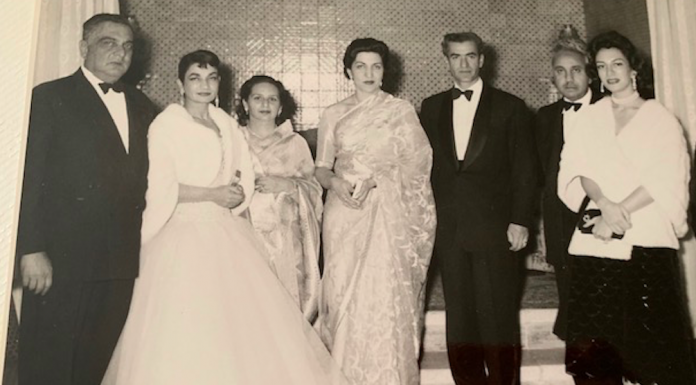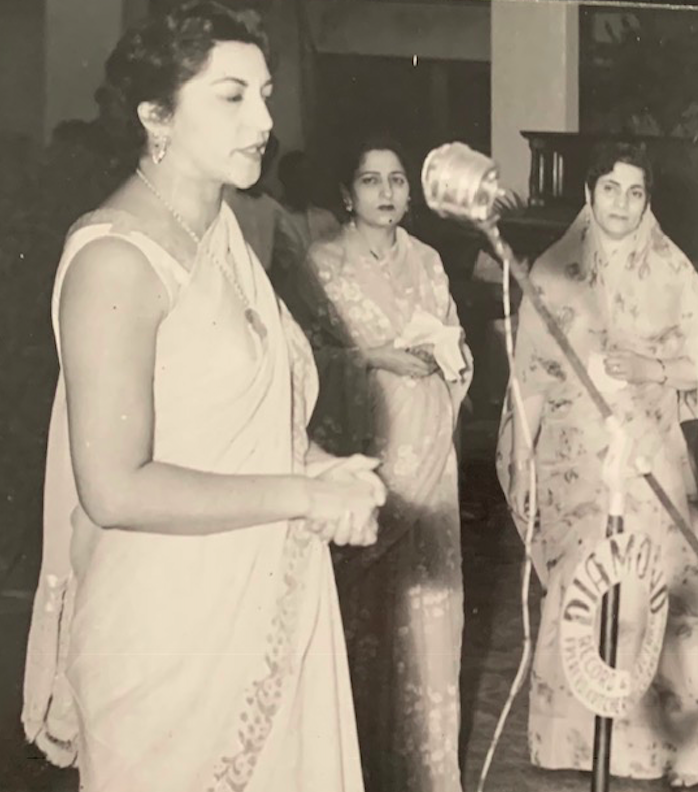Keyhan:
Begum Nahid Iskandar Mirza died in London on January 23rd, 2019, just two weeks before her 100th birthday. Born Nahid Amir Teymour, she was the first First Lady in the history of Pakistan.
When the country became an Islamic Republic and established its own constitution in 1956 — having been a British dominion until then — its National Assembly unanimously elected Iskander Mirza as Pakistan’s first President. It is then that his wife Nahid Amir Teymour became the First Lady.
The Begum was a descendant of Teymour Lang. Her father, head of the Amir Teymour tribe, was a wealthy landlord from Khorasan who was elected as a parliamentary deputy no fewer than 13 times in Tehran. He served in Prime Minister Mohammad Mossadegh’s cabinets in the early 1950s, first as Labor Minister and then as Minister of Interior. The Begum’s mother had three lines of descent from Fath-Ali Shah Qadjar. Her brother was one of Iran’s senior diplomats, serving as ambassador to New Delhi and Moscow before becoming the Shah’s penultimate ambassador to London.
At a young age, the Begum married Colonel Mehdi Afkhami. His father and uncle were both generals, and he would soon be one himself. In 1951, he was posted as Military Attaché to Karachi, then the capital of Pakistan. His wife would have preferred a divorce. Yet her father insisted that she go with him.
Shortly after they reached Karachi, at a reception at the Russian Embassy, she met Iskander Mirza for the first time. He made his way through the guests, stood before her and said simply: “You shall be my wife.” He was a portly soldier of 52, and she was a woman more than 20 years younger. He had a wife and six children. She was married with a daughter.
What made their marraige even more unlikely was that he was the Secretary of Defense of the host country, and she was the wife of the military attaché of a friendly neighbouring state. The only thing they had in common was that they were each trapped in an unhappy marriage.
Her surprise suitor also happened to be of royal lineage. Iskandar Mirza was a distant descendant of the Nawab Nazims of Bengal, Bihar and Orissa. By the time of his impetuous proposition to the wife of the Iranian military attaché in December 1951, he had been Secretary of Defense for four turbulent years and, though relatively young, was eager to retire.
In 1952, after only a year in Karachi, Colonel Afkhami was recalled to Teheran. Iskander Mirza told Nahid that he would resign and have himself posted as Ambassador to Iran. Still married at the time, she begged him to do no such thing and flew to London where her daughter was about to enter boarding school.
He finally overcame her doubts with a stream of passionate love letters which always ended with the words “Yours ever in life and in death.” Once she had obtained her divorce in December 1952, he started making plans for them to marry in Europe that summer, a protracted procedure that culminated in their wedding in September.











Look, even Pakistan was a civilized country - relatively speaking of course - when the late Shah was in power in the middle east!